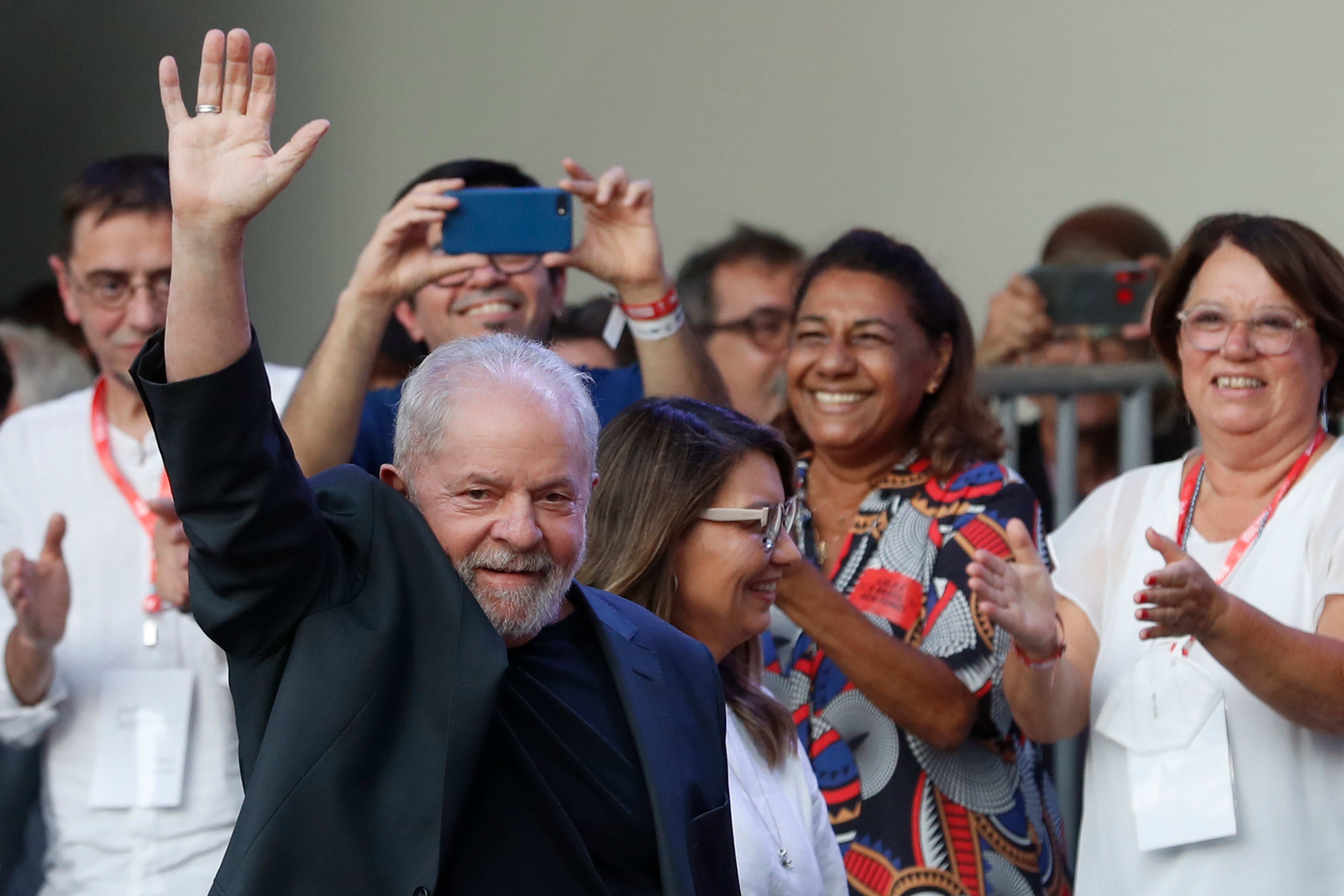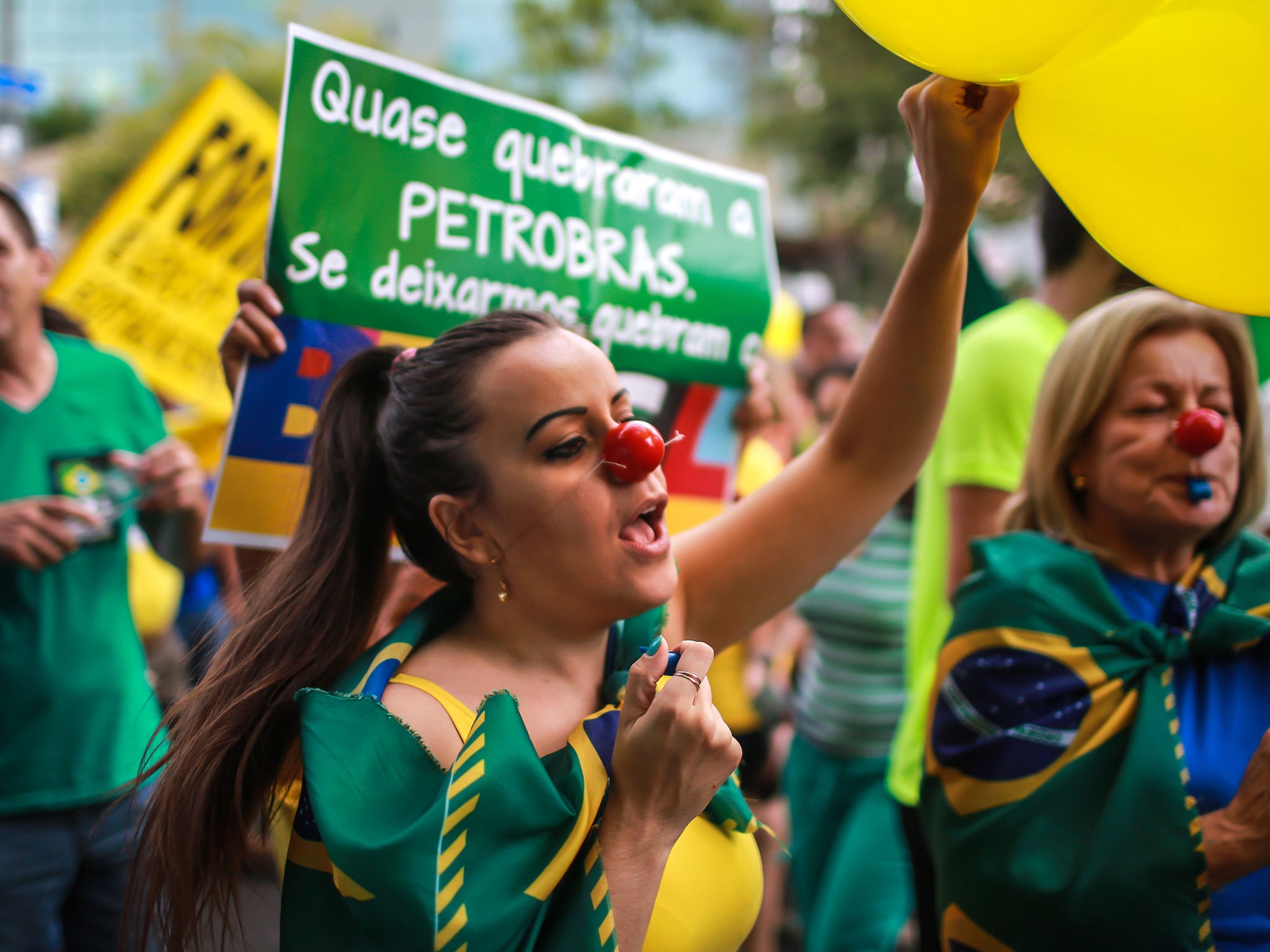Utah siblings sue Brazilian oil giant Petrobras for ‘orchestrating’ 2003 murder of their parents
Oil executive was murdered with his wife while investigating corruption in Brazil

Your support helps us to tell the story
From reproductive rights to climate change to Big Tech, The Independent is on the ground when the story is developing. Whether it's investigating the financials of Elon Musk's pro-Trump PAC or producing our latest documentary, 'The A Word', which shines a light on the American women fighting for reproductive rights, we know how important it is to parse out the facts from the messaging.
At such a critical moment in US history, we need reporters on the ground. Your donation allows us to keep sending journalists to speak to both sides of the story.
The Independent is trusted by Americans across the entire political spectrum. And unlike many other quality news outlets, we choose not to lock Americans out of our reporting and analysis with paywalls. We believe quality journalism should be available to everyone, paid for by those who can afford it.
Your support makes all the difference.Four adult children of a US oil executive who was murdered with his wife while investigating corruption in Brazil in 2003 are suing the state-owned energy giant Petrobras for “orchestrating” their deaths.
Todd and Michelle Staheli were bludgeoned to death in their beds in Rio de Janeiro on 30 November 2003 while their young children Wesley, 13, Logan, 10, Madison, aged 8 and 3-yearold Carly, slept along the hallway.
Mr Staheli had been sent to Brazil to investigate why the Shell Oil Company was losing millions of dollars in joint ventures with the corruption-plagued petroleum giant Petrobras.
Logan discovered his father’s lifeless body and found his mother barely breathing, both having suffered severe brain trauma and hemorrhaging from being severely beaten around the head. Michelle died a few days later in hospital.
Now 28, Logan told the Salt Lake Tribune he struggled to process what he was seeing, and went to find his eldest sister.
“The only thing I could think to say was, ‘Wesley, I have to show you something,’” he said.
The horror story was just beginning for the two children: within hours Wesley and Logan had been publicly named as suspects by authorities, and were separated and questioned for hours without legal representation or adult supervision by Brazilian authorities.

Rio Police suspected the children had used a toy hatchet found in their bedrooms, and a judge ordered them to remain in Brazil while authorities investigated. They were allowed to return to the US weeks later, and were sent to live with their grandparents.
Nearly a year after the murders, police arrested handyman Jossiel dos Santos, who worked at the family’s luxury gated community, and charged him with murdering the Stahelis with a crowbar.
US State Department cables released to the family in 2021 showed dos Santos was beaten and tortured during interrogation. He later confessed to the murders, before recanting.
The same Rio police officers who investigated dos Santos and the Staheli children were later convicted of corruption.
In February, the four surviving children Wesley, Logan, Madison and Carly filed a federal lawsuit in the US District Court in Utah which claims that Petrobras and Brazilian law enforcement “engaged in a massive cover-up of unlawful activities” that continues to this day.
They said the trauma of their parents’ death had caused them “severe emotion pain” and sought punitive damages and costs.
The suit alleges the murders were carried out after Mr Staheli learned Shell was losing money due to Petrobras paying bribes to “rig” the awarding of pipeline construction contracts at inflated prices.
In 2014, Brazilian federal police uncovered a $2.5bn bribery and kickback scheme known as Operation Car Wash, or Lava Jato in Portuguese.

Dozens of Petrobras executives and Brazilian government officials would eventually be arrested and convicted for their role in the scheme, including three former presidents.
The lawsuit alleges that Mr Staheli had uncovered the early stages of corruption that came out over a decade later with Operation Car Wash.
Mr Staheli had been hired as a lawyer Shell Oil Company straight out of law school and had proven himself “successful at rooting out fraud and corruption in oil projects around the world”.
He became an executive in Royal Dutch Shell, a subsidiary of Shell, and was sent to Brazil to investigate why Shell had been losing millions of dollars in joint ventures.
The lawsuit alleges that the only item that was taken from the family home on the night of the murders was a handheld computer known as a Palm Pilot, which Mr Staheli used for work.
“Despite this, the police investigators tried to claim that the murders were part of a robbery gone wrong,” attorney Rodney Snow wrote in the lawsuit.
The lawsuit stated that “black squads” were used by authorities to eliminate Petrobras critics during the early 2000s.
Dozens of police officers have been arrested and charged with crimes relating to the extra-judicial terror squads.

After years of requesting US State Department cables about their parents’ murder under the Freedom of Information Act, in 2021 the Staheli siblings obtained previously confidential documents showing officials that both Brazilian and US government officials did not believe that dos Santos was the murderer.
The FBI found the evidence of the handyman’s guilt to be weak – “particularly the police position that a crowbar was the unique weapon which inflicted the wounds”.
In another recently released cable from March 2006, the American Consulate in Rio told the US Secretary of State: “(W)e are not convinced that the Staheli assassin has been convicted.”
A State Department official was told by the Brazilian Embassy that Mr dos Santo had “been cleared of charges” in 2004.
This turned out to be incorrect, as dos Santos was convicted of the murders and sentenced by a Brazilian criminal court to 25 years prison in 2005.
According to the Salt Lake City Tribune, dos Santos changed his plea to say he let two men in on the night the Stahelis were killed in 2018 and was released from prison. Reports suggest he may have entered a witness protection programme.
Attorney Keith Woodwell told the Tribune Petrobras are yet to acknowledge the lawsuit. They have until 23 May to file a response with the District Court.
The Independent has contacted Petrobras and the Straheli family attorneys for comment.
For the family, the lawsuit represents the best chance of getting answers about their parents death.
“We have asked for help from the FBI and the State Department and the [U.S. Department of Justice],” Wesley, who is now 31 and using her married name Gillies, told the Tribune.
“We have gotten all the way up. And no one will help us.”
Join our commenting forum
Join thought-provoking conversations, follow other Independent readers and see their replies
Comments